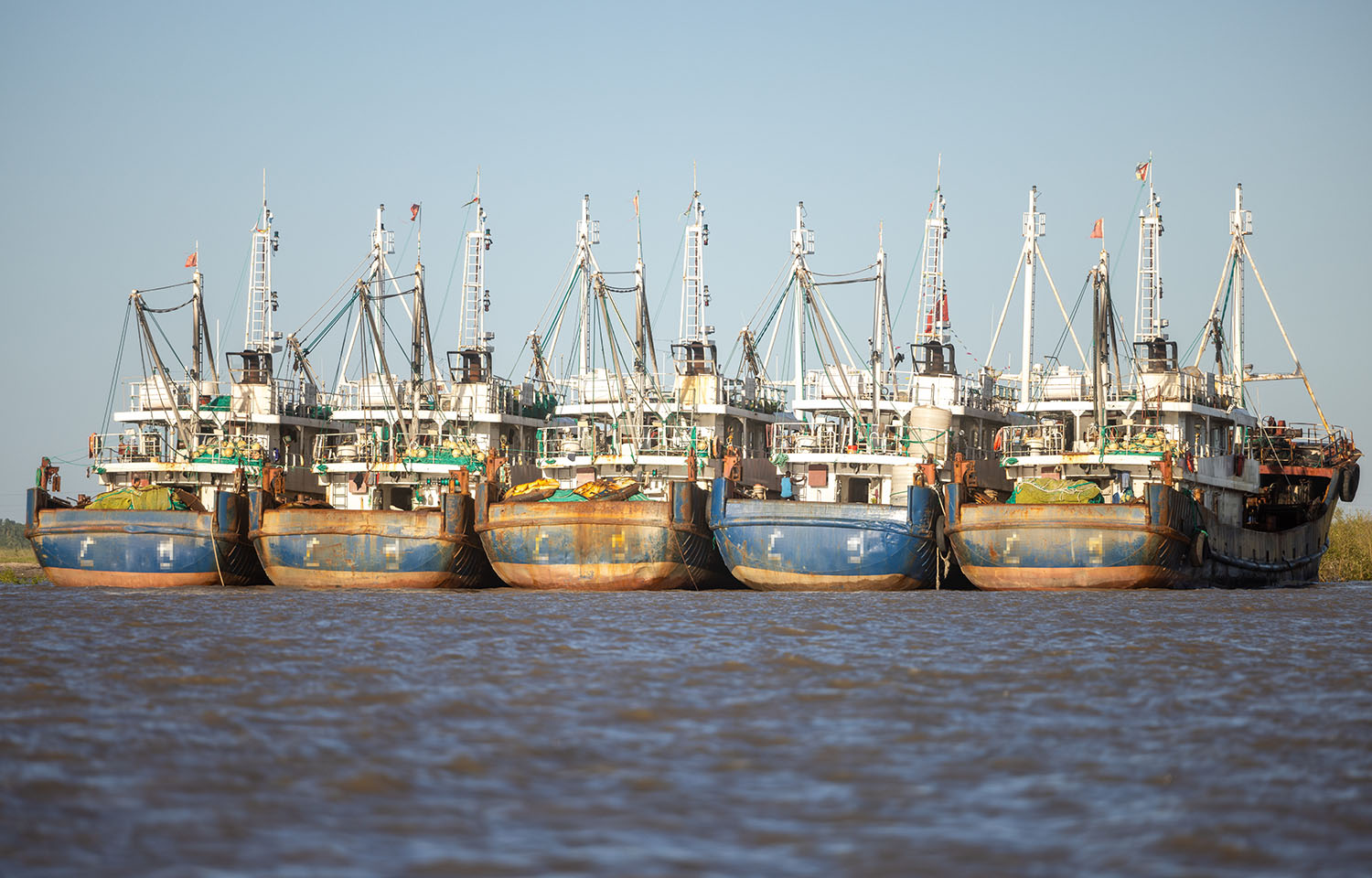The Environmental Justice Foundation (EJF) has issued a report alleging China’s distant-water fishing fleet in the Southwest Indian Ocean (SWIO) is connected to illegal, unreported, and unregulated (IUU) fishing and human rights abuses.
The report, “Tide of Injustice,” investigated China’s fleet in the region and interviewed migrant fishers onboard. According to the EJF, every single fisher the nonprofit interviewed reported witnessing either human rights abuses, illegal fishing, or both.
China has sought more fisheries partnerships and fishing agreements in the seas off the coast of East Africa, and according to the EJF, the Chinese government touts the arrangements as mutually beneficial, with China gaining access to fishing grounds while the countries in the region receiving governmental funding and the “collective benefits of the blue economy.”
But EJF said the human rights abuses onboard China's distant-water vessels fishing in the region, and the illegal fishing those vessels frequently engage in, are contrary to those claims.
“While the Chinese government portrays its investment in the countries bordering the SWIO as a win-win, the clear reality is that it is doing direct harm,” EJF Founder and CEO Steve Trent said in a release.
The report presented evidence IUU fishing, including instances of shark-finning and the deliberate capture of vulnerable marine megafauna. All told, it found 86 unique cases of either IUU fishing or human rights abuses onboard Chinese distant water fishing vessels in the region between 2017 and 2023, and half of those vessels are owned or controlled by either state-owned enterprises or enterprises in which the Chinese government has “partial interest.”
“Our extensive research raises a simple question: are these abuses at the direction of the government in Beijing, or is it failing in its responsibilities to manage its fleet?” Trent said. “The weight of evidence is so undeniable that one or the other must be true.”
EJF said it conducted interviews with 44 fishers who worked on Chinese fishing vessels in the Southwest Indian Ocean. Of the 44 interviewees, 80 percent reported seeing shark-finning, 59 percent reported deliberate capture of endangered or vulernable species such as whale sharks, and 100 percent reported abusive working and living conditions. The abuse detailed ranged from excessive overtime, to physical abuse, with 55 percent of the fishers interviewed reporting they had witnessed violence toward fellow crewmembers.
The interviewees, who mainly came from Indonesia, the Philippines, and Mozambique, also reported that between 2017 and 2023, at least four deaths occurred on Chinese tuna longliners – including a suspected suicide.
“What our investigations show is that these abuses are not confined to one vessel or fleet; one geography or jurisdiction; but almost all Chinese fishing vessels and fleets in all geographies and jurisdictions we have examined,” Trent said.
Seafood caught by the vessels is also potentially entering major international markets, EJF claimed – including Europe, the U.S., Japan, and South Korea.
Trent said the additional evidence adds to the EJF’s prior reports on labor abuse and IUU in China’s distant water fleets, and are grounds for further scrutiny of the country’s practices and for action by the country. In March 2024, the organization detailed labor abuses and IUU on vessels owned by Chinese tuna company Zhejiang Ocean Family, and a 2021 EJF report accused Chinese vessels of IUU and labor transgressions in Somali waters.
“At a minimum, this must include improving fisheries transparency to enable everyone to better understand who is fishing, how, where, and for what,” Trent said. “While the Chinese DWF is not the only culprit for illegal fishing in the SWIO, the uniquely shocking abuses it perpetrates across the region demand significant change now.”








